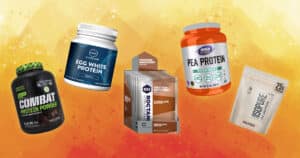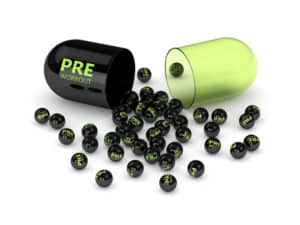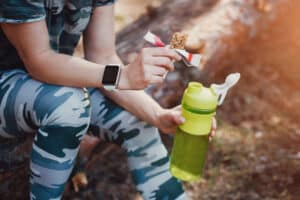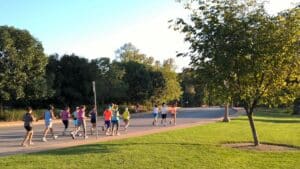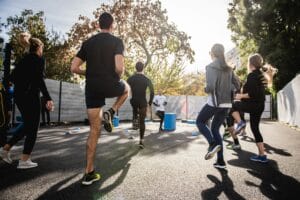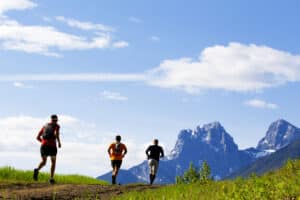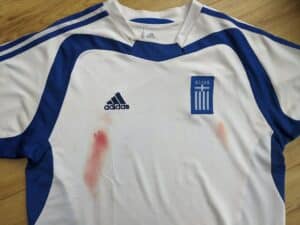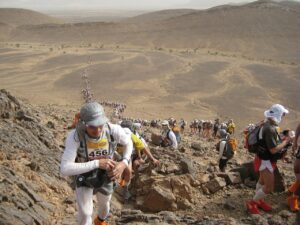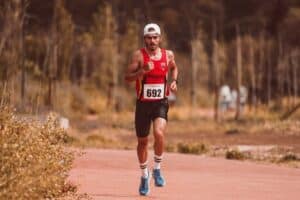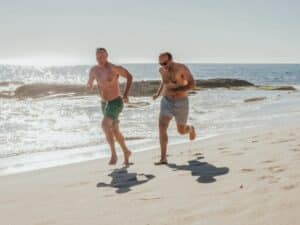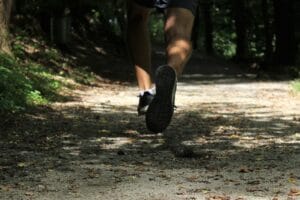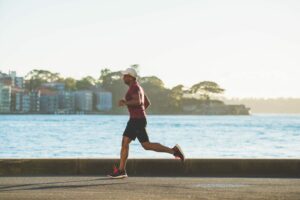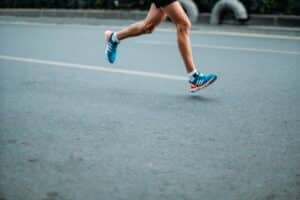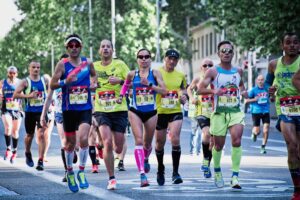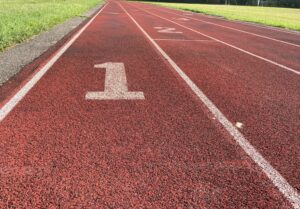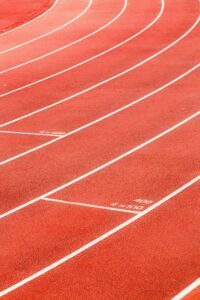One of the most essential aspects when training for any length of race is your long run. Ensuring that you are properly fueling your body beforehand is one of the best and most important ways to ensure that you get the absolute best out of your training. Planning ahead and making sure you are properly fueled is the key to any successful long run. If you go into it under fueled, you are setting yourself up for failure before you even start.
Many runners believe that breakfast is the most important meal before a long run, but it is actually the meal that you have the night before your run. Most of the energy that you’ll expend on your run will be fueled by what you take in the day before. It is very important to be eating the right combination of nutrients to get the best out of your body. If you’ve ever felt like you’ve run out of energy on a longer run, you have probably gone into it with low glycogen stores.
What to Eat to Optimally Fuel Your Long Run and Recovery After
The meal you have the night before a long run should be high in carbohydrates, preferably complex carbs, with some protein, healthy fats, as well as vitamins, and minerals. By upping your carb intake, you’re ensuring that your glycogen stores are filled before you start, which is the same as making sure the fuel tank on your car is full before setting off.
The protein is important as it helps accelerate muscle growth and helps to rebuild muscle fibers. Healthy fats are an important metabolic fuel that is important in any diet, but especially when training for a race. Getting the right combination of vitamins and minerals will ensure that your body gets the most energy from the food it’s fueled with, as well as help to maintain bone strength and help repair muscle tissue.
Carbohydrates

Carbohydrates are the most important nutrient to consider before a long run. You’ll want your meal to be high in carbs, as your body can convert them into a source of energy better than any other fuel. Complex carbohydrates (starch and fiber) are preferred over simple carbs (sugar) as they are higher in nutrients. Brown rice, whole grain pasta, beans, and fibrous vegetables like sweet potatoes and broccoli are great sources of complex carbs, as well as many vitamins and minerals.
Protein
Protein is essential to help your body rebuild muscle fiber, but the meal before a long run shouldn’t be too protein-heavy. Protein is harder for your body to break down and turn into fuel, so you run the risk of cramping, and you’ll often feel tired and slow as your body will be expending energy digesting that could have been used for running. Low-fat protein is recommended the night before a long run, such as eggs, fish, or poultry.
Fats
While some high-fat foods should be avoided the night before a long run, it is very important to get some healthy fats into your meal. Healthy fats are a great source of metabolic fuel for energy and can help your body achieve better fuel efficiency during runs. This can help you consume fewer energy bars, drinks, and gels during your runs. Avocado, almonds, cashews, walnuts, eggs, and full-fat dairy are just some examples of easy-to-find, healthy fats.
Vitamins and Minerals
Ensuring that you get the right combination of vitamins and minerals is essential to any diet, but even more so when you are training for any race where there are long training runs. While it is possible to get all your vitamins and minerals in pill or powder form, it is recommended you get as much from natural, healthy food as possible. Your body can absorb more nutrients when it comes from a food source. There are times though when you may need to supplement your diet with additional vitamins to maintain proper nutrient levels, depending on your diet.
The five most important vitamins and minerals for runners are calcium, vitamin D, iron, zinc, and magnesium. Calcium helps to maintain strong bones, which is incredibly important with the constant stresses a runner is putting on their bones. Dairy products, salmon, and leafy greens are all great natural sources of calcium.Calcium plays an important role in muscle contractions, so low calcium levels can be detrimental to a runner.
Vitamin D is found in some foods, but it is also created by our bodies when we are exposed to the sun. Without vitamin D, our bodies are unable to absorb calcium which can lead to the softening of your bones (osteomalacia) and poor muscle function. Dairy, oily fishes such as sardines and herring, and egg yolks are sources of vitamin D.. Lack of vitamin D can lead to loss of bone density, which will make you much more likely to break a bone.
Iron is one of the most common deficiencies in athletes, especially females. If you are low in iron, you’ll often feel like you’re lacking energy and tire a lot easier than usual. The easiest type of iron for your body to absorb is heme iron, which is found in animal products. Anyone who doesn’t eat meat in their diet can eat non-heme iron sources such as kidney beans, black beans, and some breakfast cereals. If you think you’re low on iron, it is best to see a doctor to get tested.
Zinc is a very important mineral as it is imperative in energy production, the repair of muscle tissue, and proper immune function. Zinc can be found in red meat, dark-meat poultry, whole and enriched grains, and cereals.Zinc is a trace mineral, meaning our bodies only need a small amount of it. Despite this, zinc is imperative to the chemical reactions of almost 100 different enzymes. Low zinc can lead to everything from diarrhea, to hair loss, to vision problems.
Magnesium is another very critical mineral to monitor your intake of. It has many functions, including helping to maintain strong bones, regulating a proper balance of vitamin D and calcium, and helping to control both your blood sugar level and blood pressure. Magnesium is fairly hard to find in refined or processed foods, so it is mostly obtained from natural foods such as leafy green vegetables, whole grains, seeds, and nuts. It can also be found in smaller quantities in dairy products, seafood, and beans. Low magnesium can weaken your bones and cause headaches, as well as other symptoms.
Hydration
No matter what you are eating, being properly hydrated is incredibly important, before during, and after a run of any length. This is especially true on long runs when you’ll more than likely be losing lots of fluid due to sweat. It is important to remember to drink enough water to keep your body properly hydrated, which will also help to aid in proper digestion, and a proper recovery so that you aren’t as sore after your long run.
Frequently Asked Questions
If you are aware of what your body needs and are knowledgeable about where to get those things, it is entirely possible to get everything you need from natural foods. However, sometimes it is easier and/or cheaper to supplement a certain vitamin or mineral that you aren’t getting enough of in your diet. Often certain diets will require you to add supplements if you can’t or won’t eat the source of a particular nutrient (Example – Vegetarians are often low in B12 as it is most often found in animal products)
Yes, it is just important to remember that you’ll want something higher in carbs and lower in protein. This is often a great time to eat an energy bar as they usually have both carbs and protein, or have an energy gel. Just remember not to eat anything too heavy, or anything that will take too long to digest.
The exact opposite! You never want to change anything right before or on race day, so have a meal that you enjoy, and that you know sits well in your stomach. The night before a race is not the time to be trying new foods that your stomach may not agree with. Trust your training, know your paces, and enjoy your race!
Conclusion
The most important thing when deciding what to eat before a long run is that everyone is a little bit different. What works for one person may not work for the next ten people.
If what you are trying isn’t quite agreeing with you, or if you don’t feel that you’re properly fueled, go back over the information above and try to find out what it is that your body is lacking.
It may not be too obvious at first, but once you figure it out you’ll be able to learn and adjust your diet. It may take some trial and error, but eventually, you’ll find something that works for you.
The most important part of running is learning from a run, and using that information to become a better, stronger, and faster runner who recovers from every run quickly.










